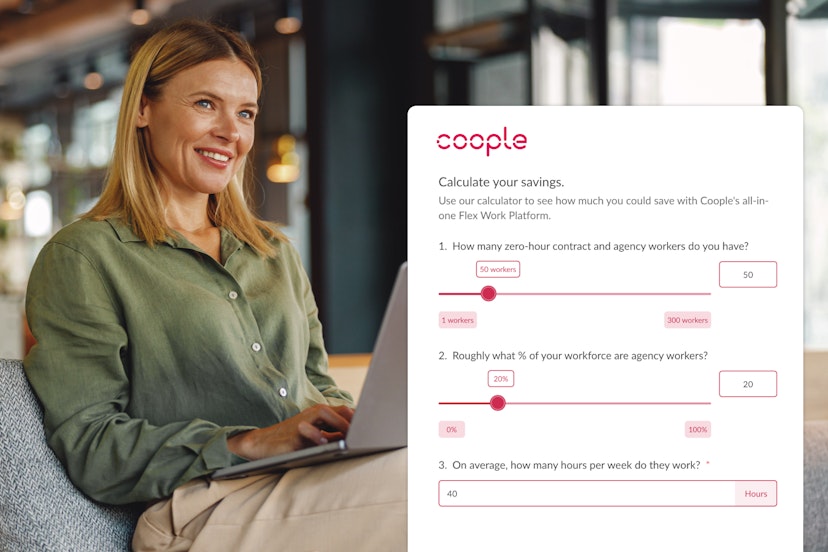Coople is now offline from 1 Jan 2026. If you need support with existing shifts or any outstanding queries, please visit our help centre or get in touch. All outstanding Coople shifts will be paid and settled.Existing client login
When tens of thousands of fans gather for a major concert, think of a Taylor Swift show, the spotlight may be on the stage - but it’s the event staff who make the experience. From security and ticketing to catering and technical crews, these short-term workers ensure everything runs safely and on time.
Whether it’s a world tour, a sports final, or a major trade show, behind every large-scale event is a complex workforce operation. For decision-makers overseeing multiple sites or events, the challenge is ensuring consistent staff quality, controlling workforce spend, and equipping managers with the tools they need to lead effectively.
In this article, we share practical strategies for hiring, onboarding, managing, and evaluating event staff, helping you deliver exceptional experiences while keeping operations scalable and cost-effective.
Hiring the right event staff quickly is essential for smooth operations, especially when overseeing multiple events or venues.
Here’s how decision-makers can hire efficiently while maintaining consistent quality and controlling costs:
1. Define roles and responsibiliites
Break down each job into specific responsibilities.
Instead of a broad “general helper,” create clear roles like “ticketing assistant” or “hospitality runner.” This clarity ensures staff can focus on their tasks, reduces overlap, and makes it easier to scale teams across multiple sites.
2. Build and use flexible talent pools
Recurring staff in your own network are valuable, but large or multi-event operations often need a broader set of reliable workers.
A flexible talent pool combines both: your trusted network of recurring staff and additional, pre-vetted professionals available on demand through the platform. This model gives you maximum flexibility and quality without hidden cost differences, so you can always match staffing levels to event needs efficiently.
3. Screen for relevant skills and experience
Even short-term staff should meet minimum requirements such as customer service, first aid, or technical experience.
Quick reference checks or reviewing past event experience ensures reliability and reduces the risk of performance gaps.
4. Plan for scalability and budget control
Events can change in scope at short notice. Hiring in stages, keeping backup staff on standby, and tracking costs in real time ensures you’re never understaffed - or over budget.
This strategic approach allows managers to adapt staffing across events while maintaining consistent service quality.
By defining roles clearly, tapping flexible talent pools, and planning with scalability and budgets in mind, you create a reliable foundation for smooth event operations across multiple sites.
Even experienced event staff need clear guidance to perform well, especially when they are working across multiple events or teams.
Effective onboarding ensures staff understand their responsibilities, stay safe, and integrate quickly.
Efficient onboarding means staff are ready to hit the ground running, managers are empowered to oversee multiple teams without getting bogged down, and event operations remain consistent and reliable.
Once your event staff are in place, the focus shifts to keeping operations running smoothly.
1. Stay connected with team leaders
Regular check-ins with team leaders ensure each team has the right number of trained staff, understands responsibilities, and receives necessary support. This allows managers to maintain control without micromanaging, freeing them to focus on broader operational priorities.
2. Maintain flexibility for changing needs
Events rarely go exactly to plan. Managers should be ready to reallocate staff across teams or sites as priorities shift. A real-time overview of staff availability and roles helps prevent gaps or overstaffing, keeping both performance and budgets under control.
3. Empower on-site decision-making
Giving team leaders autonomy to make small adjustments enables faster responses to unexpected situations while keeping managers informed. This reduces pressure on managers and supports consistent service quality across locations.
4. Encourage feedback and reporting
Quick updates from team leaders, via digital tools or short briefings, highlight successes, issues, or opportunities for improvement. This structured reporting not only resolves immediate problems but builds a knowledge base for future events.
By combining proactive communication, real-time visibility, and structured delegation, managers can oversee multiple teams efficiently, ensuring every event runs smoothly and every staff member contributes effectively.
After the event ends, structured evaluation ensures continuous improvement across teams and sites.
Decision-makers can use these insights to standardise processes, improve staffing quality, and reduce manager workload in the future.
By evaluating staff systematically and maintaining a pool of reliable talent, managers can standardise workforce quality, scale efficiently across multiple sites, and reduce day-of-event stress.
Effective event staffing means ensuring the right people are in the right place at the right time, with clear guidance and support. By focusing on efficient hiring, streamlined onboarding, proactive on-the-day management, and post-event evaluation, managers can deliver consistent, high-quality events across multiple sites with less stress and greater control.
For organisers juggling multiple events or sudden staffing changes, technology can make a real difference.
Digital staffing platforms like Coople allow you to build and manage flexible talent pools, schedule shifts, and track staff performance all in one place. This centralised approach reduces administrative burden, ensures coverage, and helps managers maintain consistent staffing quality and budget control.
Register now and watch a demo of Coople’s Flex Work platform to discover how you can build reliable, adaptable event teams that ensure your events run smoothly.

Coople’s staffing cost calculator shows what your flexible workforce is really costing you - not just in pay, but in planning time and hidden admin.

Optimise staffing with smart workforce management solutions that cut costs, boost productivity, and adapt to changing business demands.

Build a scalable talent funnel to improve shift coverage, cut costs, and give managers more control – without adding admin headaches.